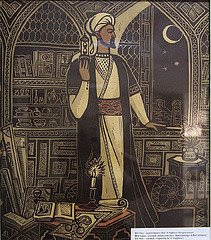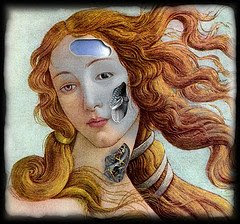1.Why is Margaret Somerville protected by body guards ? 1:30-3:00 mins.
Her ideas are very controversial, especially those relating to the fact that she doesn't believe that same sex marriages are a good idea. A Canadian university wanted to give her an honorary doctorate for her work in ethics but there was a national campaign to block this. There were protests and the body guards were there to protect her.
2. What is her stand on gay rights? 1:40-2:00 mins.
She believes that gays have suffered terribly from discrimination, and that we should recognise their rights. However, she opposes same sex marriage because of its effect on children. She talks about this in greater detail later in the interview.
3. How does she feel about pain? Explain why she opposes circumcision of infants. What are some benefits of circumcision? 3:06-4:14 mins
She believes there is a fundamental human right not to be left in pain or to have pain inflicted on us, unless it is absolutely justified. She opposes infant circumcision because it is painful. There is apparently some evidence that circumcision prevents to some extent transmission of HIV in Africa. However, this, she says, should not justify practising circumcision on children.
4. Margaret Somerville was accused of anti-semitism because of her opposition to the practice of circumcision on infants. However, five Jewish rabbis defended her. Why? 4:13-4:42 mins.
It became an issue not of whether her arguments were right or wrong but of freedom of speech.
5. Why has she become the most cited academic in Canada? 5:03-5:30 mins
The issues of circumcision or same sex marriages were not really the concern for the media or the public at large. What was more important was her right to express her views; that is, the central issue was freedom of speech.
6. Why is Somerville always in the media? 5:57-7:05 mins
In Canada academics are in 'the public square'. She explains that this was something that was traditionally looked down on by some academics. However, she feels she has an obligation to explain her research to the general public for the reason that they, as taxpayers, are funding it. She says she gives from 500-800 interviews a year, and finds it a learning experience to engage with the public.
7. Somerville has a taste for controversy. Retell her run in with her teacher Sister Rosemary at the age of seven, and then explain why she may like being in controversial situations. 7:05-9:45 mins.
Her father was an athesist and communist, her mother was a practising catholic and took Margaret to mass on Sunday mornings. Naturally, her father refused to go. Margaret said she didn't see why she had to go if her father wasn't going. Her mother told her that he would go to hell for this. The following morning at school her teacher Sister Rosemary at the catholic school she attended asked the class if they wanted to go to heaven. Margaret was the only child who said she wanted to go to hell. She wanted to go there because that's where she thought her father was going and she wanted to be with him.This made her feel 'out on a limb'. She feels she enjoys controversy partly because of the attention it drwas to her, but also because it is her way of finding out what is right.
8. What is Somerville's definition of ethics? 9:45-10:12 mins
Somerville tells her students ethics is firstly, ' trying not to do the wrong thing', and secondly, '[trying] to do good things for other people'.
9. Explain why she opposes same sex marriage. 11:01-16:30 mins.
-What does she mean by "Can the future trust us?"
Somerville's central ideas are contained in two books The Ethical Canary and the Ethical Imagination. She advocates there should be respect for all life especially for human life.
Her question for her students is 'can the future trust us?' By this she is referring to the health and well being of future generations which could be altered through genetic engineering and the new reproductive trechnology which can change who we are fundamentally as human beings.
-Talk about the definition of marriage
Marriage is for men and women and it automatically includes the right to found a family. Marriage therefore is not for homosexual couples.
-Mention advances in medical science to enable homosexual couples to have their own genetic children
Recently researchers have managed to create a mouse baby from two female mice. She says that this technology will soon be available to humans. What is done in animals will in 5-10 years be possible in humans. Somerville is concerned about the impact on the children born to same sex parents. In the Ontario Supreme Court it was decided that gay couples could have the right to benefit from this new reproductive technology, and to do otherwise would be discrimination. She also talks about the fact there are now children with three genetic parents.
What are 'the civil unions' in the UK and le pax civile in France and why were they created?
They are contracts that gay couples could make a public declaration of their love for one another, as well as protect them financially enabling them to inherit fromone another. Civil unions don't carry the right to have children and for this reason Somerville is in favour of them.
10. What is transhumanism and what are her views on it? 16:35-20.00 mins.
Transhumanism is the belief that modern day humans are obsolete.
She opposes this because changing what we are would compromise our 'essence of humanness '. She admits that she does not have a complete definition of this and it is her main project. Nevertheless, she explains that this essence deserves protection because it has developed over 4 billion years of evolution.
She is also concerned about the production of robots for whom transhumanists claim will deserve more respect owing to their superior intelligence. She is also worried about the production of 'cyborgs', part human part machines, that are able to experience emotions, and the questions of how much respect is owed these creatures.
-What is her major project?
It is to identify the essence of humanness described above, and tied to this is the concept she calls the 'secular sacred'. This basically means finding points for which all parts of society can agree are sacred and therefore inherently wrong to change. This involves 'building bridges between science and ethics, science and religion'. She also says she is looking at alternatives to reason which she calls 'other ways of knowng'. She is looking also to bring the major religions together by finding common values that they can all share.
11.She claims that the evolutionary biologist Richard Dawkins the author of The God Delusion is "mystically tone-deaf", what does she mean by this? 20:02-21:35 mins.
This means that he cannot appreciate the mystical or the artistic in the same way that someone who has no musical ability cannot hear different notes in a scale.
12. Richard Dawkins blames all the evils in the world on religion. What is Somerville's response to this? Do you agree with her reasoning? 21:35- 22:48 mins.
She thinks this is very unfair. He blames 9/11 on religion. You could argue that science is the root of evil.She argues that the airplanes were created through science. Religion can be used for good or evil and science is the same.
13. What are Somerville's thoughts on the existence of God and an afterlife? 22:49-25:33 mins.
She doesn't really answer this question directly, and certainly her anwser is both vague and difficult. Nevertheless, she says that what is more important than the existence of God or an after life is that we exist in a great mystery that is not explicable in our language and we can only have a 'sense of it'. (It is ironic that this is Richard Dawkins' view too! See Richard Dawkins book Unweaving the Rainbow published in 1998). She gives an example of research being carried out that shows that our minds are far more complex than we know, they contain mechanisms to detect up to now 'unknown realities' which are more mysterious and awe inspiring than we can imagine.
14. Somerville cites a Japanese saying, explain what it means and why she said it.
"As the radius of knowledge expands the circumference of ignorance increases."25:33-26:00 mins.
She sees science as uncovering more and more mysteries instead of satisfying our curiosity. This she says is a kind of a miracle.
Return to:
Is it Right? Introducing Margaret Somerville
Monday, September 22, 2008
Subscribe to:
Comments (Atom)







+II+-+socialist+art+by+night+_eulen.jpg)








